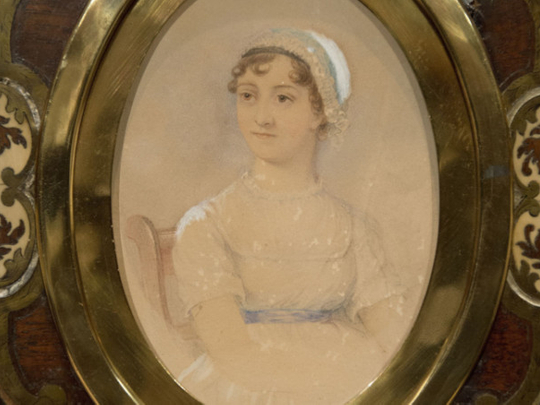
It’s no longer universally acknowledged that “a single man in possession of a good fortune must be in want of a wife”, but many of Jane Austen’s thoughts on love, relationships, class, clothes and even the joys of nature are amazingly relevant to modern life.
To mark the 239th anniversary of the author’s birth which has also been designated the first ever Jane Austen day — to mark the occasion, here are some of her best quotes.
ON LOVE
“There are as many forms of love as there are moments in time.”
— Mansfield Park (1814)
“No man is offended by another man’s admiration of the woman he loves; it is the woman only who can make it a torment.”
— Northanger Abbey (1817)
“One half of the world cannot understand the pleasures of the other.”
— Emma (1815)
“The more I know of the world, the more I am convinced that I shall never see a man whom I can really love. I require so much!”
— Sense and Sensibility (1811)
“If I loved you less, I might be able to talk about it more.”
— Emma (1815)
ON MARRIAGE
“Marriage is indeed a manoeuvring business.”
— Mansfield Park (1814)
“Next to being married, a girl likes to be crossed in love a little now and then.”
— Pride and Prejudice (1813)
“Happiness in marriage is entirely a matter of chance.”
— Pride and Prejudice (1813)
ON WOMEN AND MEN
“I hate to hear you talk about all women as if they were fine ladies instead of rational creatures. None of us want to be in calm waters all our lives.”
— Persuasion (1817)
“Give a girl an education and introduce her properly into the world, and ten to one but she has the means of settling well, without further expense to anybody.”
— Mansfield Park (1814)
“One cannot be always laughing at a man without now and then stumbling on something witty.”
— Pride and Prejudice (1813)
ON LIFE
“Surprises are foolish things. The pleasure is not enhanced, and the inconvenience is often considerable.”
— Emma (1815)
“Know your own happiness. Want for nothing but patience — or give it a more fascinating name: Call it hope.”
— Sense and Sensibility (1811)
“There is nothing I would not do for those who are really my friends. I have no notion of loving people by halves, it is not my nature.”
— Northanger Abbey (1817)
“Life seems but a quick succession of busy nothings.”
— Mansfield Park (1814)
ON ART
“Every savage can dance.”
— Pride and Prejudice (1813)
“The person, be it gentleman or lady, who has not pleasure in a good novel, must be intolerably stupid.”
— Northanger Abbey (1817)
“Without music, life would be a blank to me.”
— Emma (1815)
“To be fond of dancing was a certain step towards falling in love.”
— Pride and Prejudice (1813)
ON FASHION
“To look almost pretty is an acquisition of higher delight to a girl who has been looking plain the first fifteen years of her life than a beauty from her cradle can ever receive.”
— Northanger Abbey (1817)
“Dress is at all times a frivolous distinction, and excessive solicitude about it often destroys its own aim.”
— Northanger Abbey (1817)
“One man’s style must not be the rule of another’s.”
— Emma (1815)
ON LEISURE
“To sit in the shade on a fine day, and look upon verdure is the most perfect refreshment.”
— Mansfield Park (1814)
“One cannot have too large a party.”
— Emma (1815)
“Indulge your imagination in every possible flight.”
— Pride and Prejudice (1813)
“They are much to be pitied who have not been given a taste for nature early in life.”
— Mansfield Park (1814)
ON SOCIETY
“It is very difficult for the prosperous to be humble.”
— Emma (1815)
“I do not want people to be very agreeable, as it saves me the trouble of liking them a great deal.”
— Jane Austen’s Letters (1952)
“Vanity working on a weak head, produces every sort of mischief.”
— Emma (1815)
“The more I see of the world, the more am I dissatisfied with it; and every day confirms my belief of the inconsistency of all human characters, and of the little dependence that can be placed on the appearance of merit or sense.”
— Pride and Prejudice (1813)
Guardian News & Media Ltd












